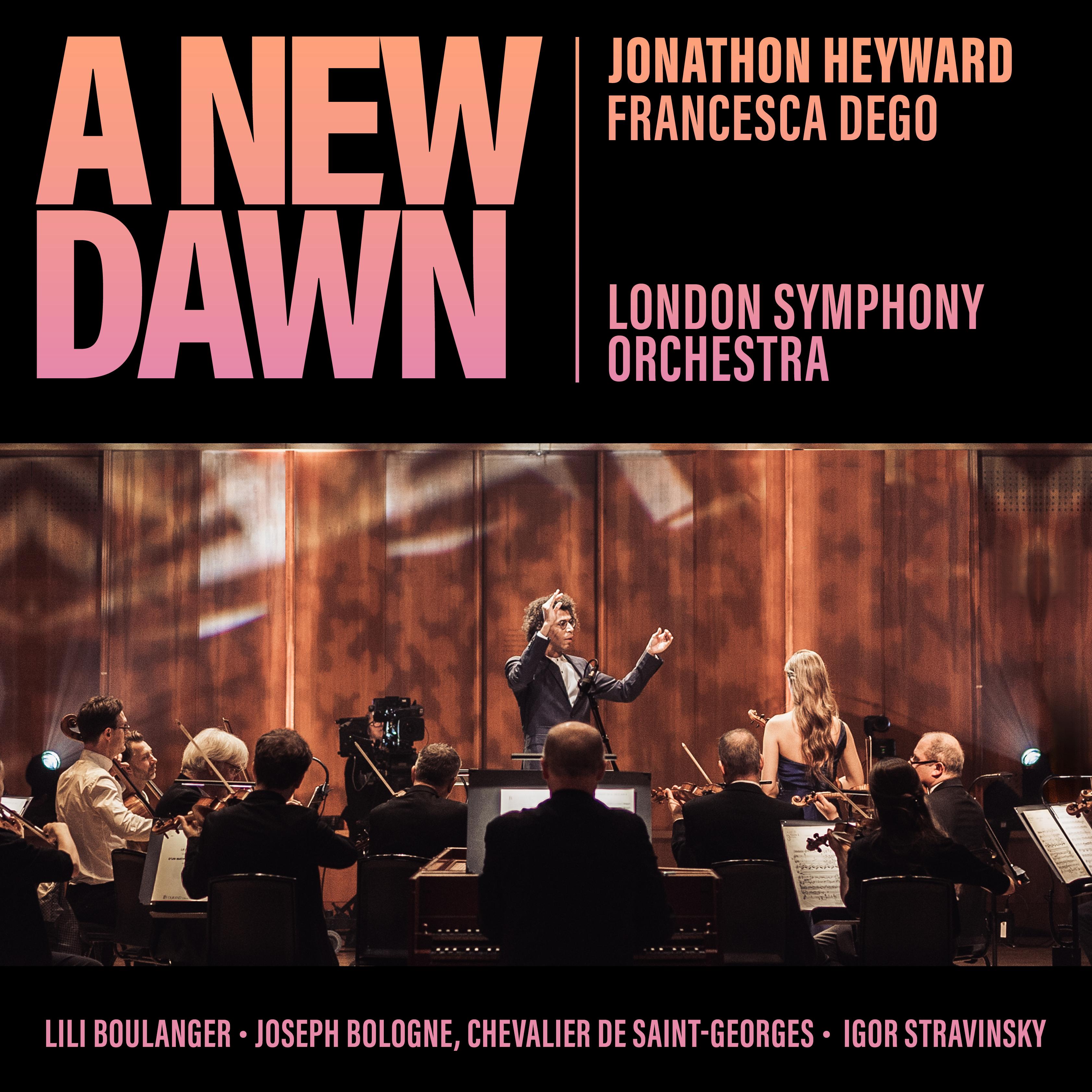

A NEW DAWN
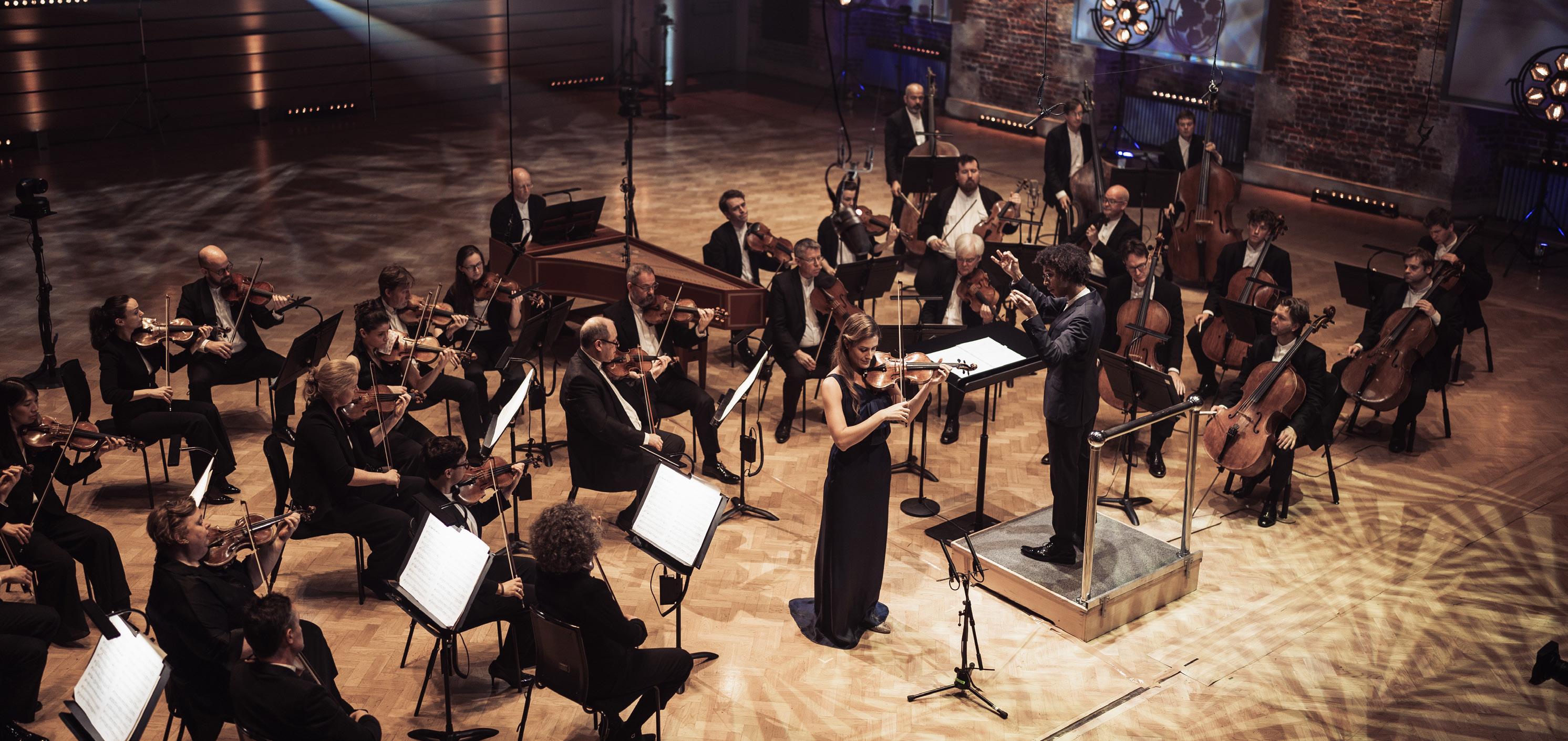
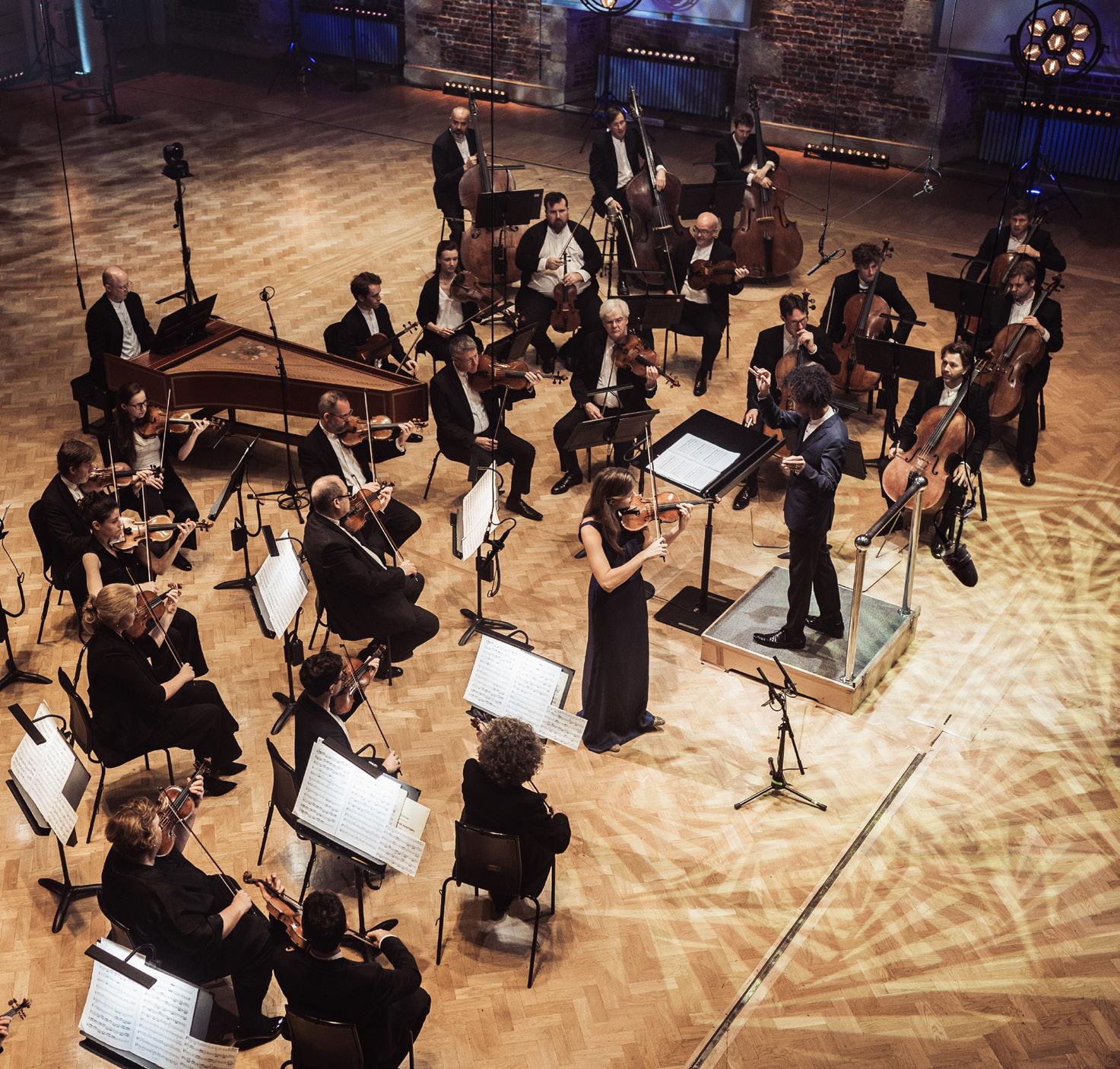
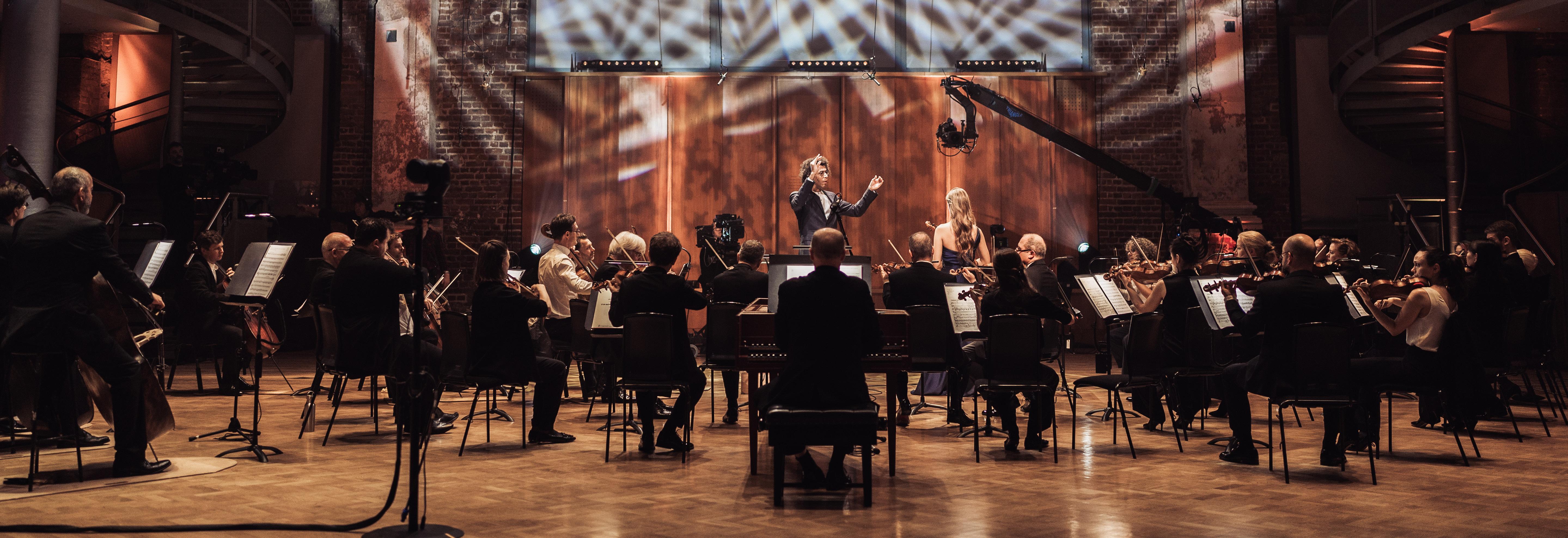
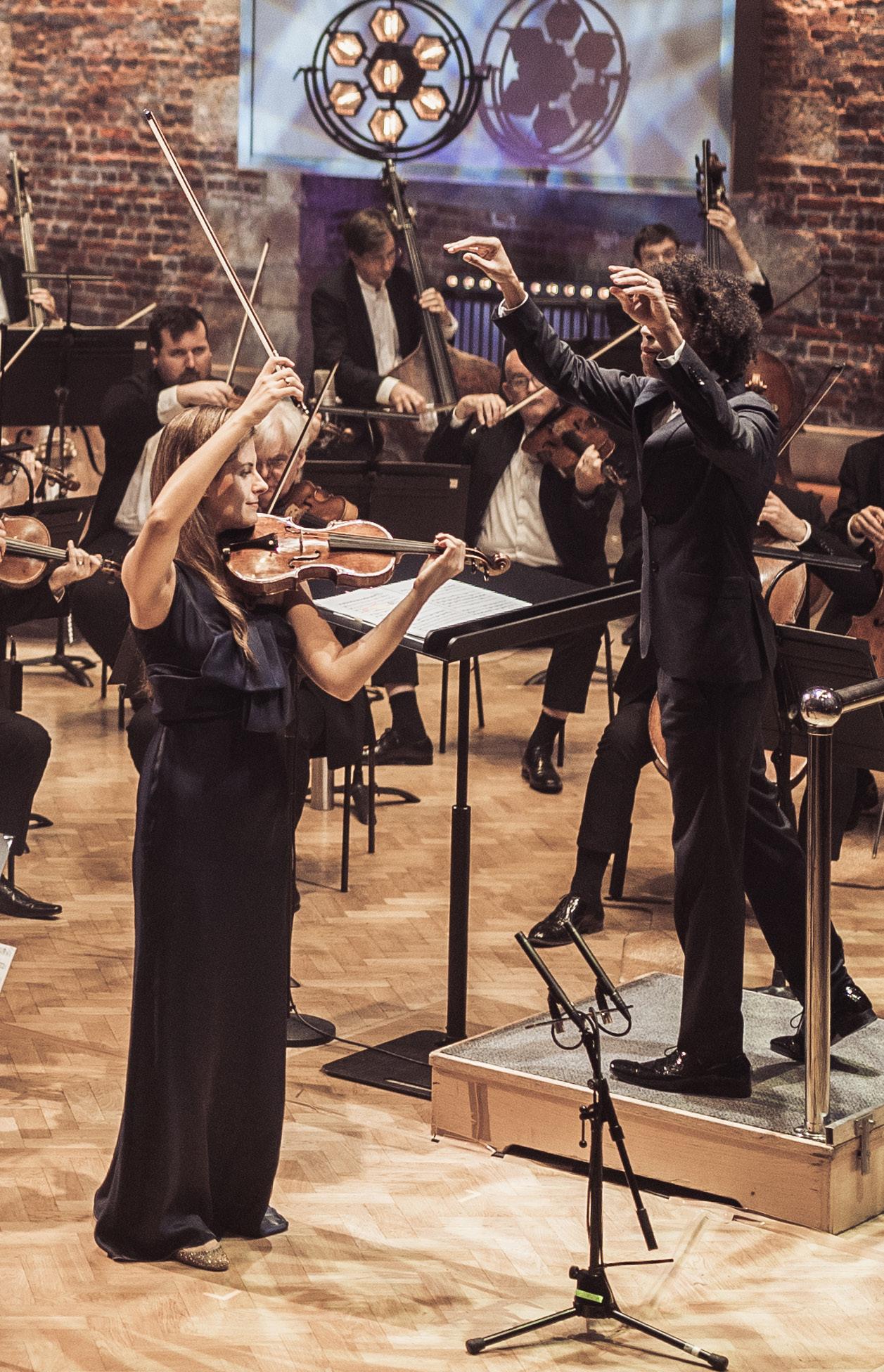
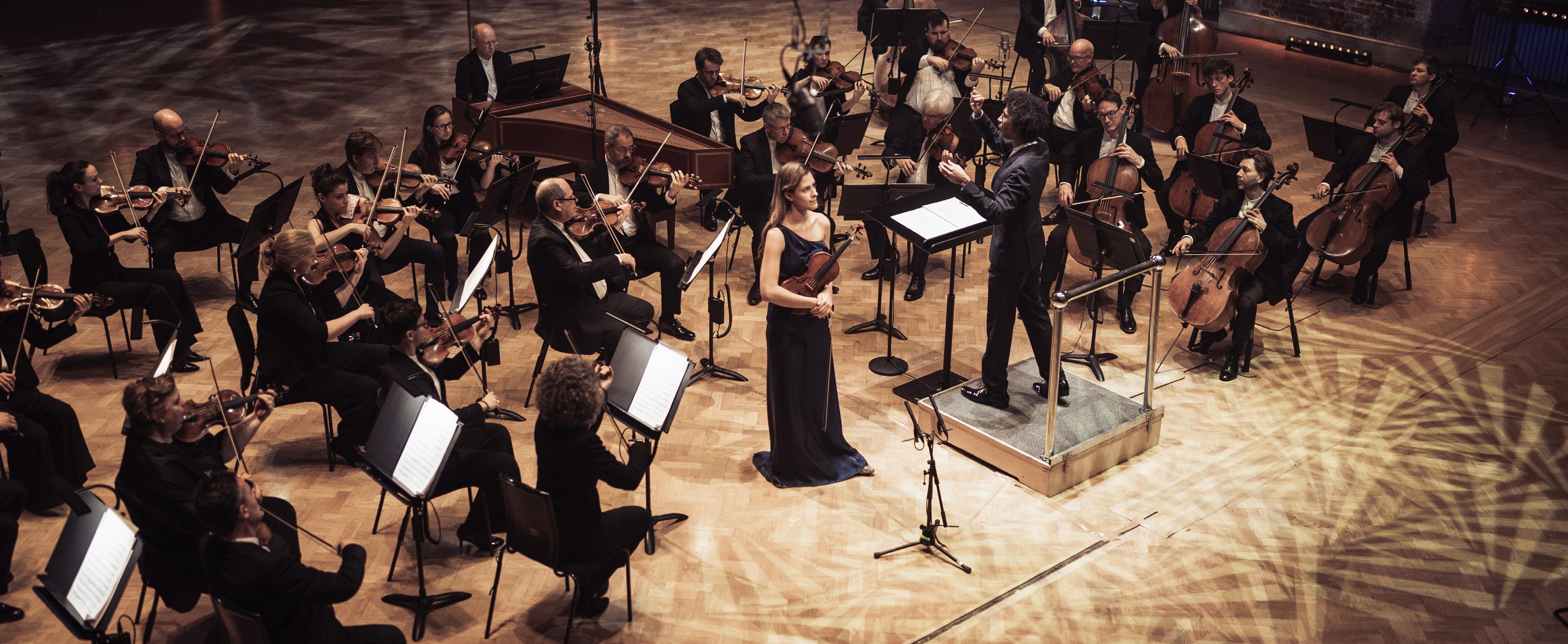
A NEW DAWN
Beginnings in classical music can take many forms. Each work presented here comes from early in the life of a composer of exceptional talent – a talent fulfilled to a different extent in each case, and with a different life-story to match. Female composers were as few in early 20th-century France as anywhere else – a situation that did not prevent Lili Boulanger from making her mark, during her short life, as potentially one of the major talents of her time. More than 100 years earlier Joseph Bologne, Chevalier de Saint Georges had come to prominence in 18th-century Paris as one of the finest violinists of his era, and also as one of the first people of colour to achieve fame as a classical musician. And Igor Stravinsky was a little-known young composer from Russia when the brilliantly successful premiere of his ballet score The Firebird, staged in Paris in 1910, launched his 60-year career as a leading musical force of the new century.
Lili Boulanger’s father, the singing teacher Ernest Boulanger, was 77 years old when she was born; her mother, one of Ernest’s former pupils at the Paris Conservatoire, was the much younger Russian princess Raissa Mychetsky. But age was no barrier to affection, and Ernest’s death in 1900 deeply saddened Lili and her older sister, Nadia. The two daughters were remarkable child prodigies: besides singing, Lili studied the piano, violin, cello, organ and harp. Her interest in composing grew during her teenage years, despite the persistent ill health that had begun with pneumonia when she was two years old. In 1913 her choral cantata Faust et Hélène made her the first female winner of the muchcoveted Prix de Rome for French composers.
When she composed D’un matin de printemps (From a Spring Morning), Boulanger was already terminally ill with tuberculosis. The music exists in three different chamber-music versions written in 1917, followed in January 1918 by the orchestral score recorded here. The music’s feeling of inner
A NEW DAWN
strength makes this a more imposing work than its short duration might suggest, and its remarkable energy seems to defy the illness from which Boulanger died just two months later. The orchestral colouring, at once sumptuous and subtle, reflects Debussy’s influence; but the work’s verve and panache are much more personal to Boulanger herself, pointing ahead to a richly creative future that was not to be.
Another story of confronting major difficulties is presented by the life of Joseph Bologne, Chevalier de Saint-Georges. Born in what was then the French Caribbean colony of Guadeloupe, Bologne was the illegitimate son of a married French plantation owner and a 16-year-old Senegalese slave. As a small boy he was sent to boarding school in Paris, before his father and natural mother arrived there two years later. Bologne’s exceptional skill at fencing won him the twin titles of Gendarme du roi (member of the French king’s bodyguard) and Chevalier, earning him a place in Parisian society despite ongoing racial prejudice. Meanwhile he built a parallel reputation as a solo violinist and conductor, while composing a prolific output of operas and orchestral and chamber music. He then served as a commander in the French Revolutionary Army, while continuing to organise and perform in concerts until his death in 1799.
Bologne composed 14 Violin Concertos, of which Op. 5, No. 2 in A major is one of a pair published in 1775. Each of its three movements shows complete technical command of early classical style, besides displaying the composer’s deft mastery of his chosen instrument. While the opening Allegro moderato movement does not explore beyond what convention expected at the time, a much more individual musical voice is heard in the expressive Largo that follows, and the concluding Rondeau sparkles with speedy wit and invention.
A NEW DAWN
Igor Stravinsky’s upbringing in pre-revolutionary St Petersburg was an unlikely start in life for a ground-breaking master-composer. The city’s musical scene was colourful but conservative – as exemplified by the style of Stravinsky’s teacher Rimksy-Korsakov, whose exotic idiom operated within limits defined by the tastes of its Tsarist Russian audience. Stravinsky showed no childhood interest in composing, and his early student works, while very accomplished, showed little individuality. Then he landed a major commission for the 1910 summer season of Serge Diaghilev’s Ballets russes company in Paris.
The Firebird‘s sensational success created an opportunity to arrange a shortened orchestral suite for concert performance. In 1911 Stravinsky made this for his ballet’s Russian publisher, but royalty payments from that source were cut off by the Russian Revolution. Based in neutral Switzerland, as the sole earner for his own growing family and that of his exiled sister-in-law, Stravinsky needed money urgently. So he arranged the suite presented here, using a smaller orchestra than for its predecessor. Premiered in Geneva, this 1919 suite remained standard for many years (although Stravinsky later arranged a third version to secure the music’s American copyright).
The sequence of set-pieces spotlights the composer’s brilliant achievement in fusing the atmosphere of a Russian fairy-tale – as in the dream-like ‘Berceuse’ (Lullaby) – with the powerful rhythmic drive and orchestral virtuosity of his mature style. These qualities come through in the flickering music for the Firebird herself, and in the ‘Infernal Dance’ of King Kashchei, whose evil machinations are finally overcome by the hero Prince Ivan with the Firebird’s help.
[883]
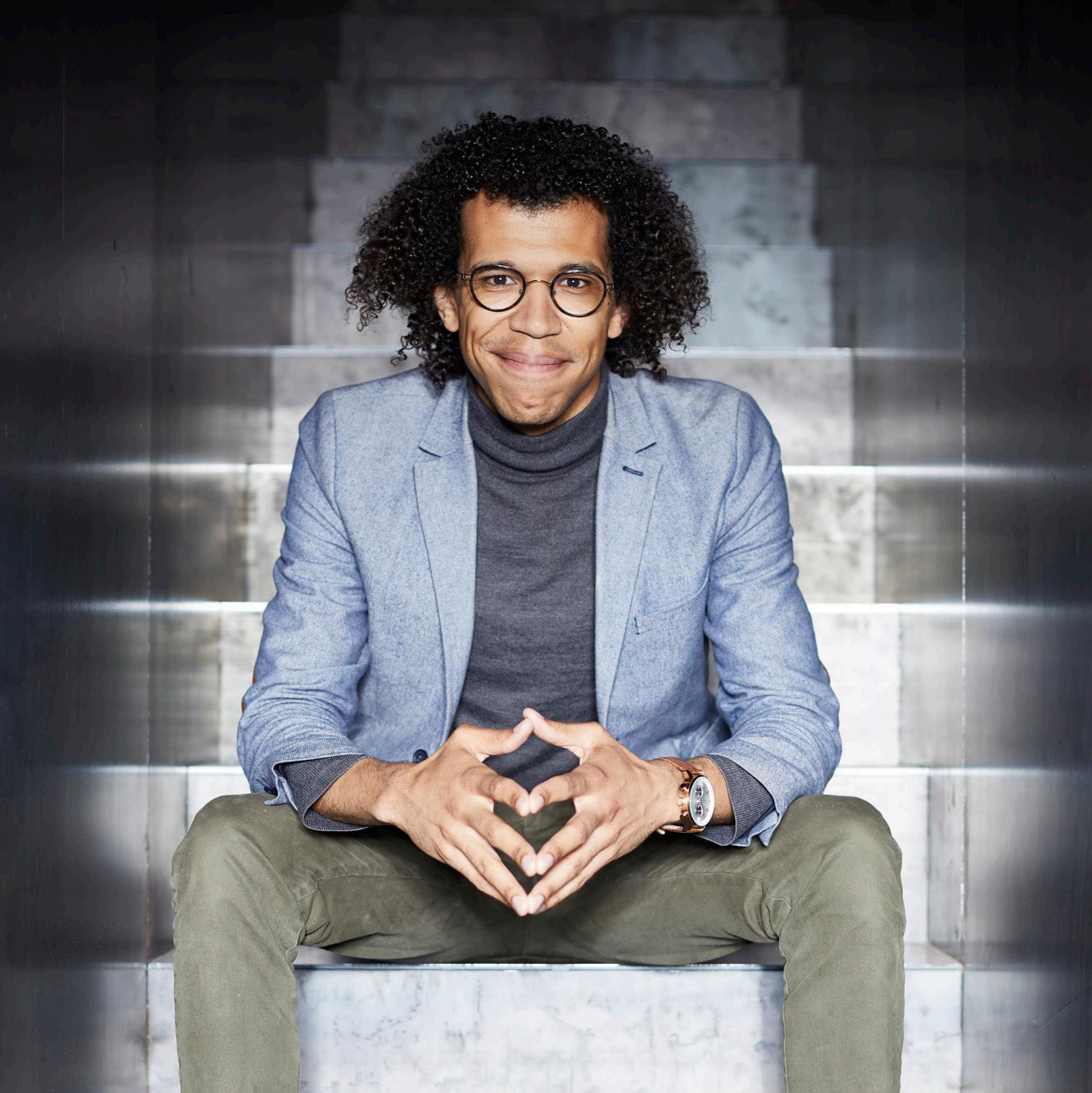
JONATHON HEYWARD CONDUCTOR
Jonathon Heyward is forging a career as one of the most exciting conductors on the international scene. He is Music Director Designate of the Baltimore Symphony Orchestra, beginning his five-year contract in 23/24. Jonathon’s selection was unanimous from the Baltimore Symphony Music Director Search Committee. In 2022, Jonathon made his debut with Baltimore Symphony Orchestra and was quickly re-engaged, returning to lead a Benefit Concert for Ukraine. Jonathon is also in his second year as Chief Conductor of the Nordwestdeutsche Philharmonie.
In summer 2021, Jonathon participated in an intense, two-week residency with the National Youth Orchestra of Great Britain, which led to a highly acclaimed BBC Proms debut. In Colin’s Column, Ateş Orga noted: “This Prom was about Jonathon Heyward, NYOGB and Beethoven. …Heyward’s a man of twenty-nine coolly heading for the stratosphere.”
Jonathon’s recent UK guest conducting highlights include debuts and re-invitations with the London Symphony, BBC National Orchestra of Wales, BBC Symphony, Royal Scottish National Orchestra and Scottish Chamber Orchestra. In continental Europe, amongst Jonathon’s recent debuts are collaborations with the Orquesta Sinfónica de Castilla y León, Basel Symphony, Orchestre de Chambre de Lausanne, Brussels Philharmonic, SymfonieOrkest Vlaanderen, Antwerp Symphony, Philharmonie Zuidnederland, and Kristiansand Symphony. In 22/23, Jonathon makes debuts with the Musikkollegium Winterthur, Orchestre National Bordeaux Aquitaine, Lahti Symphony, MDRSinfonieorchester, and the National Symphony Orchestra in Dublin, Ireland. Most recently in his native United States, Jonathon made debuts at Grant Park and Mostly Mozart Music Festivals, and with the St Louis Symphony Orchestra. In 2021 he made his Wolf Trap debut conducting the National

JONATHON HEYWARD
CONDUCTOR
Symphony Orchestra in Washington DC, and this was followed by hugely successful debuts with the Atlanta, Detroit and San Diego Symphony Orchestras, leading to instant re-invitations.
Equally at home on the opera stage, Jonathon recently made his Royal Opera House debut with Hannah Kendall’s Knife of Dawn , having also conducted Kurt Weill’s Lost in the Stars with the Los Angeles Chamber Orchestra as well as the world premiere of Giorgio Battistelli’s new opera, Wake , in a production by Graham Vick for the Birmingham Opera Company.
Born in Charleston, South Carolina, Jonathon began cello lessons at the age of ten and started conducting while at school. He studied conducting at the Boston Conservatory of Music, where he became assistant conductor of their opera department and the Boston Opera Collaborative. He received postgraduate lessons from Sian Edwards at London’s Royal Academy of Music. Before leaving the Academy, he was appointed assistant conductor of the Hallé Orchestra, where he was mentored by Sir Mark Elder and became Music Director of the Hallé Youth Orchestra.
Jonathon’s commitment to education and community outreach work deepened during his three years with the Hallé and has flourished since he started as Chief Conductor of the Nordwestdeutsche Philharmonie in January 2021. He is equally committed to including new music within his imaginative concert programmes. Those qualities were evident in his Baltimore Symphony Orchestra debut bill, which comprised Hannah Kendall’s The Spark Catchers, Beethoven’s Third Piano Concerto and the first ever BSO outing for Shostakovich’s Fifteenth Symphony.

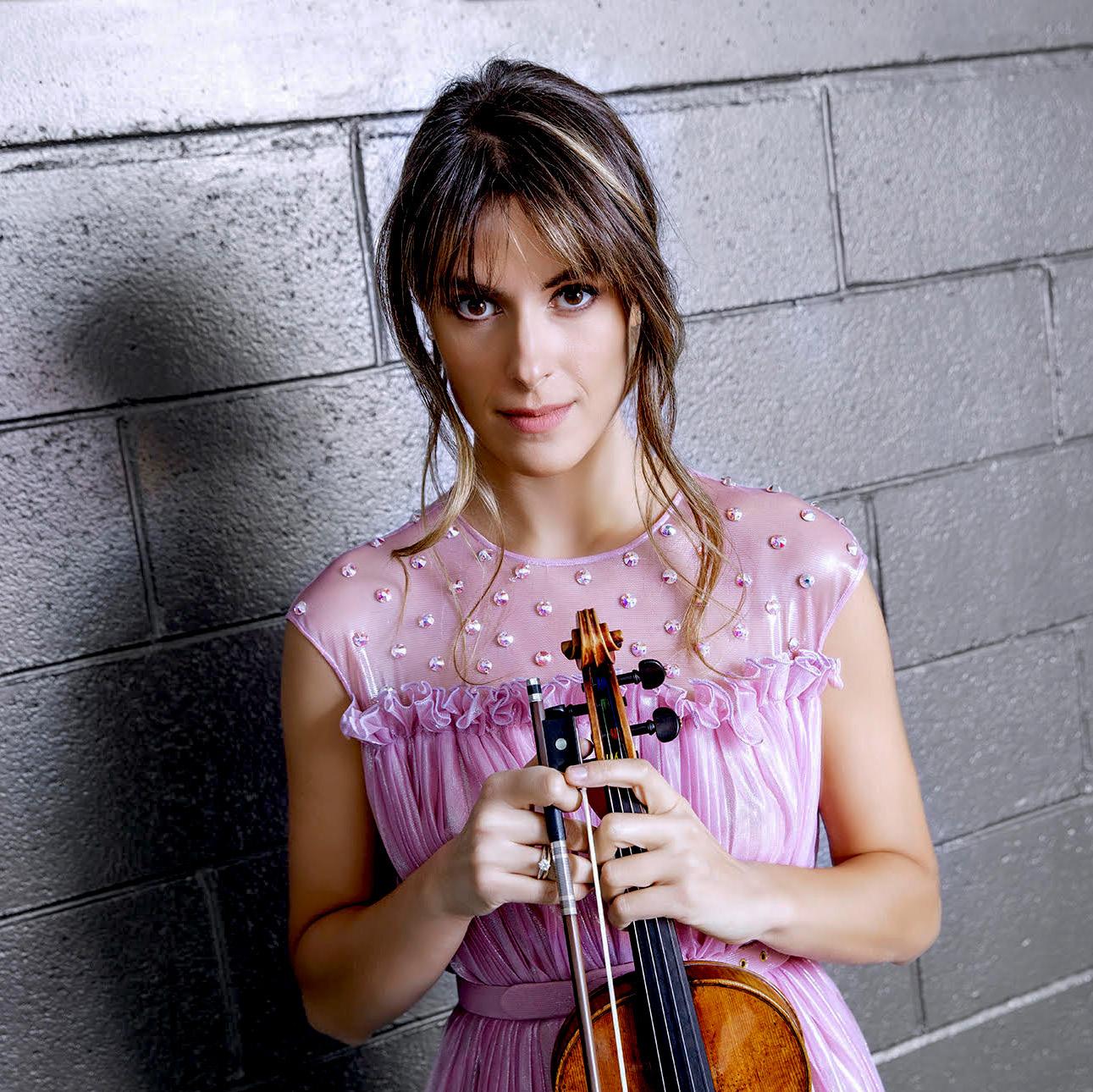 Photographer Credit: Davide Cerati
Photographer Credit: Davide Cerati
FRANCESCA DEGO VIOLIN
Celebrated as both a recitalist and concerto performer of notable distinction, Francesca Dego is one of the most sought-after violinists on the international scene. Her 22/23 season includes debuts with Orchestre de Champs Elysées, Orquesta Sinfónica de Castilla y León, National Symphony Orchestra of Ireland, North Carolina, Sofia Philharmonic and Faroese Symphony Orchestras. She also returns to Washington National Symphony Orchestra, Ulster Orchestra and Orchestra della Toscana, and makes her much-anticipated debuts at the Wigmore Hall and Kissinger Sommer Festival.
Recent highlights include her debut with the NHK Symphony Orchestra, Bernstein’s Serenade at La Fenice, Orchestre Chambre de Lausanne, the Hallé, Philharmonia, and Royal Scottish National Orchestras, Gürzenich-Orchester Köln, Tokyo Metropolitan Symphony Orchestra, Orchestre
Philharmonique de Nice, Teatro Regio di Torino, Accademia Nazionale di Santa Cecilia, Orquesta de Sevilla and de la Comunitat Valenciana, Auckland Philharmonia and Santa Barbara Symphony.
Signed to Chandos Records, her recent releases of Mozart Violin Concerti with the Royal Scottish National Orchestra have been received to unanimous critical acclaim. Other releases include concertos by Paganini and Ermanno Wolf-Ferrari, the recital disc Il Cannone, as well as a complete survey of the violin sonatas by Beethoven and of Paganini’s Caprices, for Deutsche Grammophon.
Francesca is based in London and plays on a rare Francesco Ruggeri violin (Cremona 1697).
Francesca Dego is an exclusive artist of Chandos Records and appears with their kind permission.

LONDON SYMPHONY ORCHESTRA
The Patron of the LSO was
Her Late Majesty Queen Elizabeth Il
Music Director Sir Simon Rattle OM CBE
Principal Guest Conductor Cianandrea Noseda
Principal Guest Conductor François-Xavier Roth
Conductor Laureate Michael Tilson Thomas
Choral Director Simon Halsey CBE
The LSO was formed in 1904 as London's first self-governing orchestra and has been resident orchestra at the Barbican since 1982. In 2017, Sir Simon Rattle took up the position of Music Director of the LSO, following in the footsteps of Hans Richter, Sir Edward Elgar, Sir Thomas Beecham, André Previn, Claudio Abbado, Michael Tilson Thomas, Sir Colin Davis and Valery Gergiev, among others. The Orchestra gives numerous concerts around the world each year, plus more performances in London than any other orchestra. It is the world's most recorded symphony orchestra and has appeared on some of the greatest classical recordings and film soundtracks. The LSO also runs LSO Discovery, its ground-breaking education programme that is dedicated to introducing the finest music to young and old alike and lets everyone learn more from the Orchestra's players.
For more information visit Iso.co.uk
For further information and licensing enquiries, please contact:
London Symphony Orchestra
Barbican Centre, Silk Street
London, EC2Y 8DS, United Kingdom
+44 (0)20 7588 1116
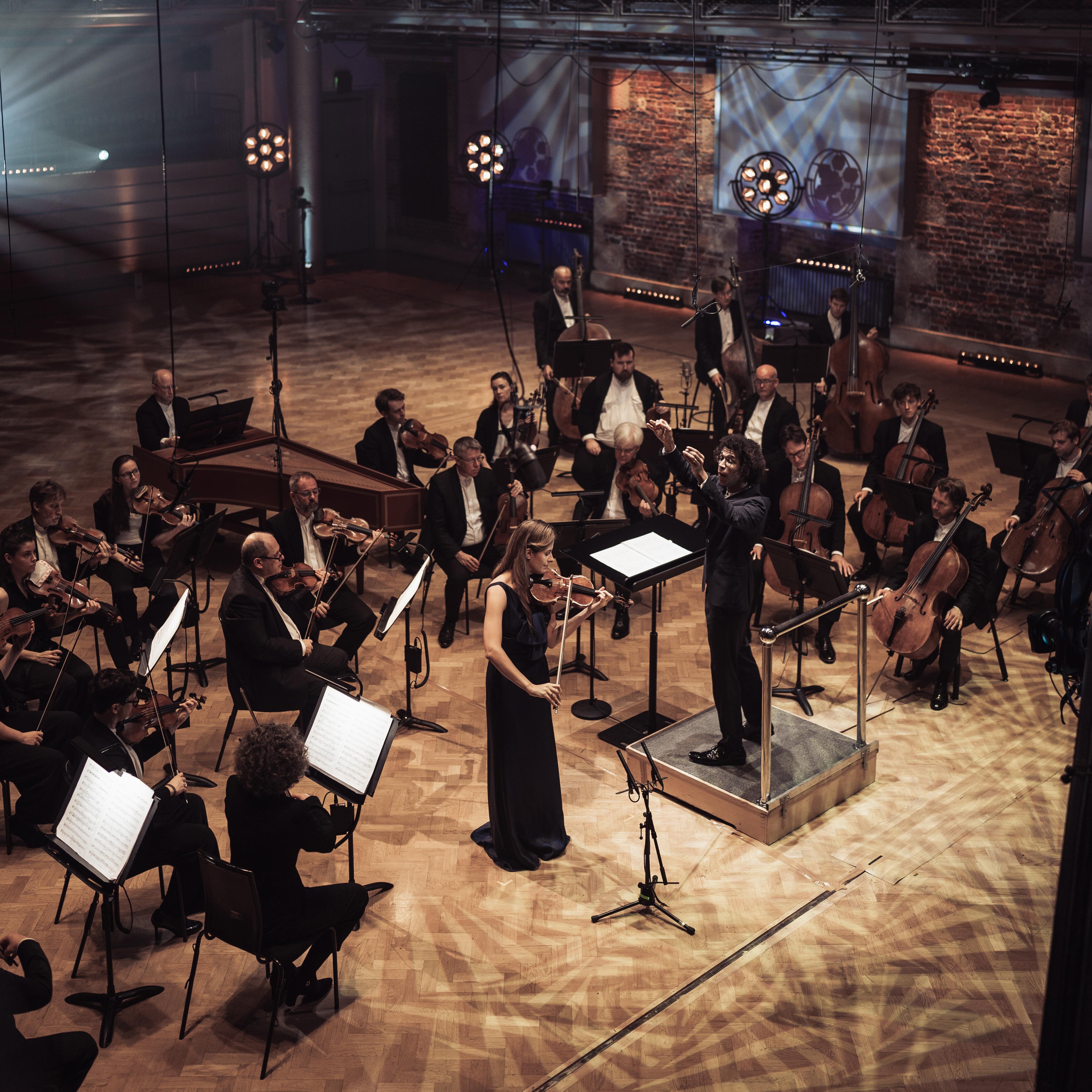
A NEW DAWN
Jonathon Heyward, conductor
Francesca Dego, violin
First Violins
Stephanie Gonley Guest Leader
Clare Duckworth
Ginette Decuyper
Maxine Kwok
Claire Parfitt
Laurent Quénelle
Harriet Rayfield 1, 3
Eleanor Fagg 1, 3
Caroline Frenkel 1, 3
Victoria Irish 1, 3
Lisa Izumi 1, 3
Grace Lee
Dániel Mészöly
Erzsebet Racz 1, 3
Second Violins
David Alberman *
Thomas Norris
Sarah Quinn
Matthew Gardner 1, 3
Belinda McFarlane 1, 3
Csilla Pogany
Paul Robson
Cindy Foster 1, 3
Lyrit Milgram 1, 3
Greta Mutlu
Madeleine Pickering
Jan Regulski
Violas
Malcolm Johnston *
German Clavijo 1, 3
Steve Doman
Julia O’Riordan
Robert Turner
Catherine Bradshaw 1, 3
Luca Casciato
Philip Hall 1, 3
Alistair Scahill
Matthias Wiesner 1, 3
Cellos
David Cohen *
Alastair Blayden
Daniel Gardner
Judith Fleet 1, 3
Silvestrs Kalniņš
Desmond Neysmith 1, 3
Jessie Ann Richardson 1, 3
Peteris Sokolovskis
Double Bass
Nikita Naumov **
Patrick Laurence
Josie Ellis 1, 3
Alex Jones 1, 3
Simon Oliver
Hugh Sparrow 1, 3
Flutes
Gareth Davies * 1, 3
Clare Findlater 1, 3
Piccolo
Patricia Moynihan ** 1, 3
Oboes
Olivier Stankiewicz * 1, 3
Imogen Davies 1, 3
Cor Anglais
Maxwell Spiers ** 1, 3
Clarinets
Matthew Glendening ** 1, 3
Andrew Harper 1, 3
Bass Clarinet
Robert Ault ** 1
Bassoons
Rachel Gough * 1, 3
Shelly Organ 1, 3
Contrabassoon
Rebecca Koopmans ** 1
Horns
Timothy Jones * 1, 3
Finlay Bain 1, 3
Andrew Budden 1, 3
George Strivens 1, 3
Trumpets
James Fountain * 1, 3
Katie Smith 1, 3
Thomas Nielsen 1
Trombones
Lindsay Shilling ** 1, 3
Tom Berry 1, 3
Bass Trombone
Paul Milner * 1, 3
Tuba
Peter Smith ** 1, 3
Timpani
Nigel Thomas * 3
Percussion
Sam Walton * 1, 3
David Jackson 1, 3
Paul Stoneman 3
Oliver Yates 3
Harps
Helen Tunstall ** 1, 3
Piano
Catherine Edwards ** 3
Celeste
Catherine Edwards ** 1, 3
Harpsichord
James Johnstone ** 2
* Principal
** Guest Principal
1 Boulanger only
2 Bologne only
3 Stravinsky only

A NEW DAWN
Jonathon Heyward, conductor
Francesca Dego, violin
Recorded November 14 – 15, 2022 at Jerwood Hall, LSO St. Luke’s, London, UK
Producer
Jonathan Allen
Sound Engineer
Jonathan Stokes for Classic Sound
Stereo Mixing & Mastering
Jonathan Allen
Atmos Mixing
Jonathan Allen
Cover Artwork Photography
Matthew Johnson
Cover Artwork Design
Alexis Simone
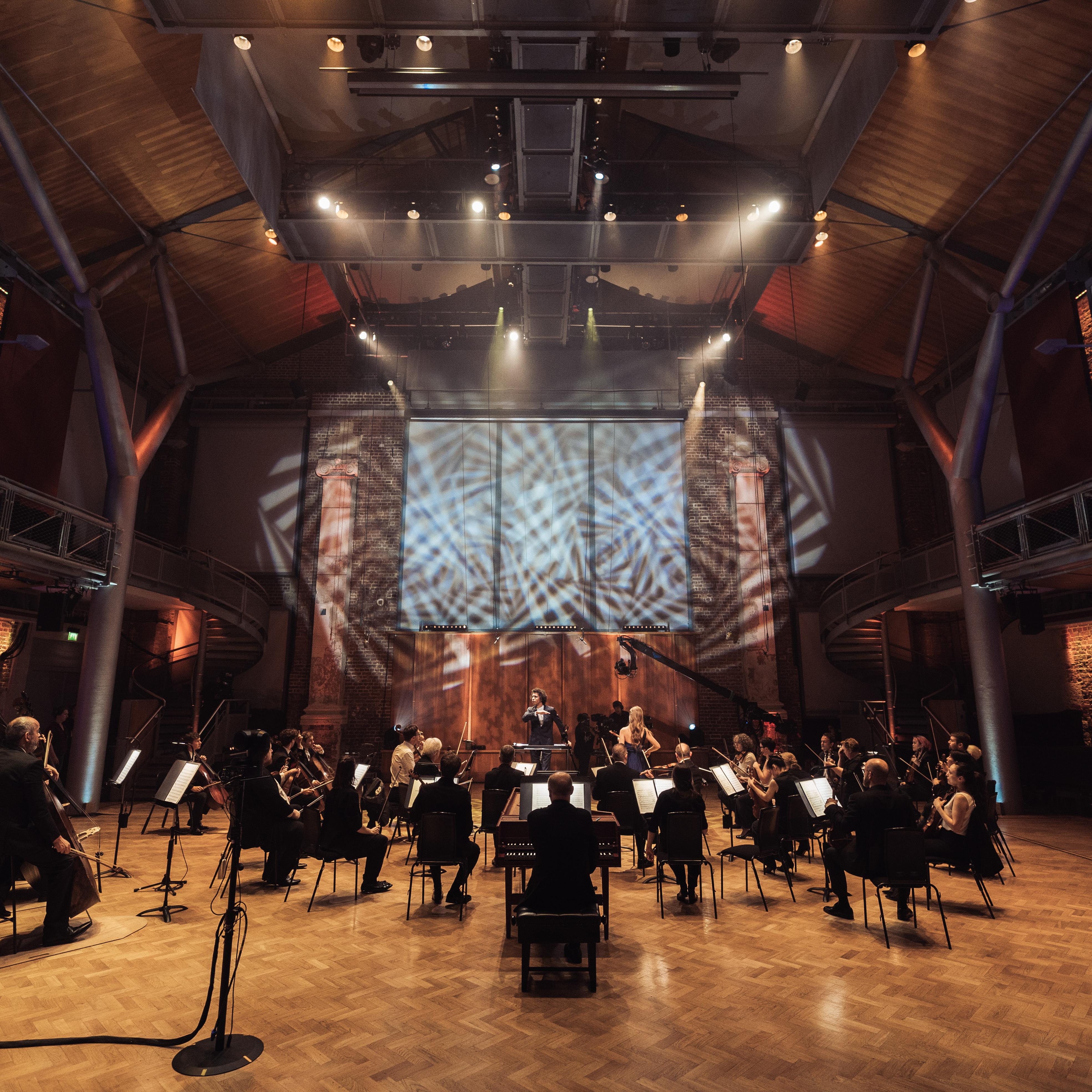
Catalog number: PLAT16535 (Platoon)
2022 London Symphony Orchestra
